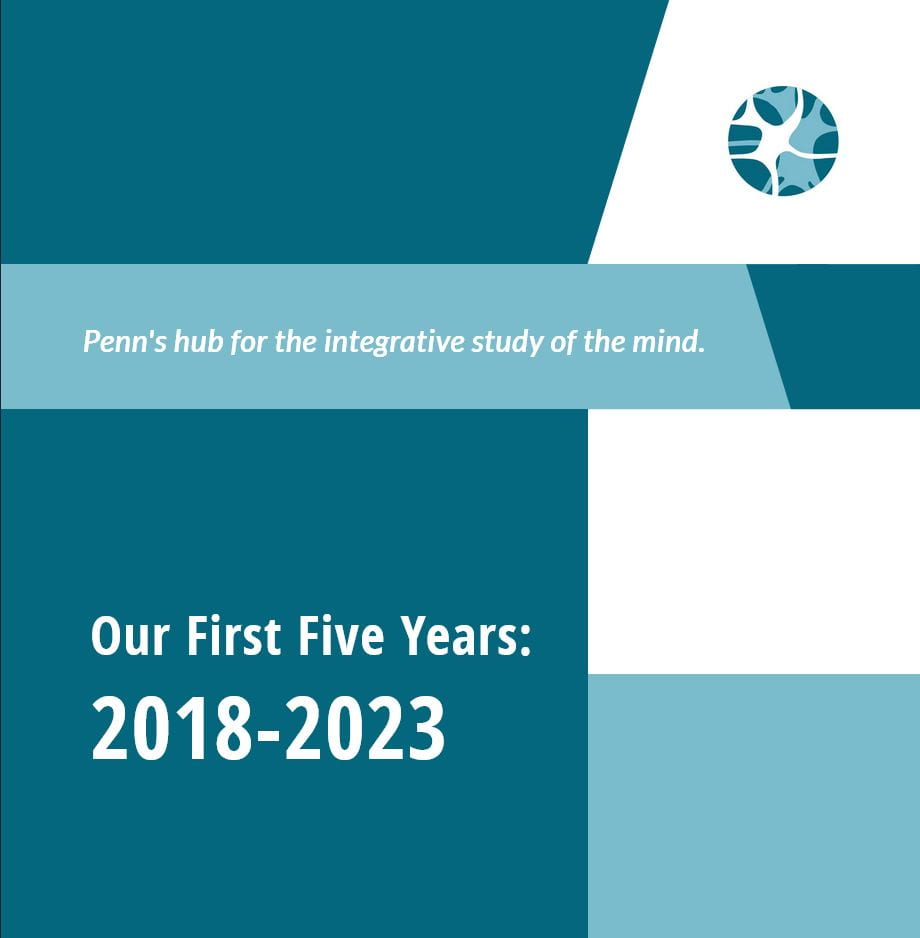About
MindCORE is Penn’s hub for the integrative study of the mind.
MindCORE (Mind Center for Outreach, Research, and Education) was established as one of the School of Arts and Sciences’ key endeavors under the “Mapping the Mind” initiative identified in the School’s strategic plan, Foundations and Frontiers. Designed to unite researchers, programs, and initiatives involving human intelligence and behavior across the University, and with roots in the success of the former Institute for Research in Cognitive Science, MindCORE officially launched January 2018.
A main focus of our center is to catalyze new research on the mind and foster innovative collaborations between different departments and centers within Penn Arts & Sciences, as well as with other Penn schools including the Perelman School of Medicine, Wharton, Engineering, and the Annenberg School for Communication. MindCORE helps consolidate these activities within one umbrella organization and supports them strategically with resources such as seed funds, technology, staffing, and programming to make them more efficient, visible and impactful.
MindCORE participates in a variety of outreach programs, including lectures, partnerships with local museums and community organizations, and community science initiatives, to engage the academic community and the public.
MindCORE facilitates more interaction among a number of brain- and behavior-related undergraduate programs including psychology, biology, linguistics, and Biological Basis of Behavior and is home to the Cognitive Science major. In addition, there are opportunities for undergraduate and graduate students and postdoctoral fellows to conduct research and disseminate the results.
Mission
Penn MindCORE is an interdisciplinary effort to understand human intelligence and behavior. Research programs in MindCORE bring together faculty with diverse approaches to the study of the mind, from disciplines in the Arts & Sciences ranging from Psychology, Biology, Cognitive Science, Neuroscience, and Physics to Economics, Linguistics, Political Science, Sociology, and Philosophy; and they bridge to centers and departments in Medicine, Wharton, Engineering, and Annenberg. MindCORE supports undergraduate and graduate programs that are educating the next generation of students of the mind. MindCORE promotes cutting-edge research, increases the broader societal impact of new knowledge about human behavior and decision making gained from current research, and works to influence public policy and education through coordinated outreach programs.
People
MindCORE welcomes associates from disciplines in mind & brain sciences across Penn’s campus. Click here to learn about MindCORE’s leadership & affiliated faculty, trainees, students, and more.
MindCORE supports a variety of public programs on and off campus to engage the academic community and the public with our research. Our outreach goals include:
- Enhance public understanding of human intelligence and behavior;
- Broaden participation of young scientists from groups typically underrepresented in cognitive and brain science;
- Inform policy-making across governmental levels with insights about human behavior and decision making;
- Support and encourage faculty and young investigator outreach initiatives in our community; and
- Inspire the next generation of explorers of the mind.
MindCORE is an interdisciplinary center focused on understanding the mind, drawing on tools from psychology, biology, neuroscience, and the humanities. The overarching goal of MindCORE is to support outreach, research and education related to the mind and brain. Topics relevant to MindCORE include, but are not limited, to perception, language use, memory, decision-making, social networks, and creativity.
MindCORE also solicits proposals for the MindCORE Research Initiative Program, which supports innovative interdisciplinary research in mind and brain within the University of Pennsylvania.
MindCORE provides administrative support and research opportunities for postdoctoral fellows (called junior fellows) and graduate fellows. Undergraduates will have the opportunity to pursue interdisciplinary majors and minors related to human intelligence and behavior, as well as summer research opportunities. Our specific objectives for education are to:
Establish funding opportunities for doctoral students doing interdisciplinary research in areas of human behavior and decision making.
- Develop and support graduate certificate and masters programs–including on-campus, on-line, and hybrid models–related to the study of the mind.
- Provide administrative support and research opportunities for interdisciplinary majors and minors related to human intelligence and behavior.

